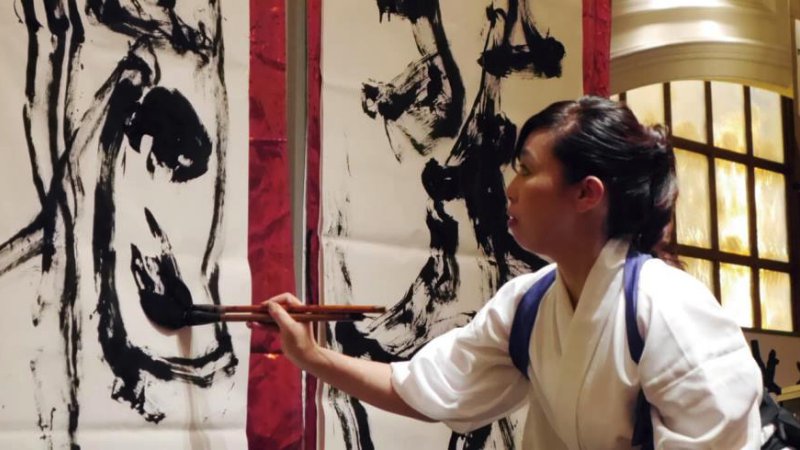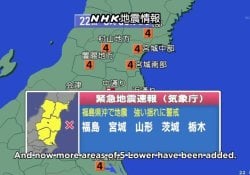When living in a Japanese-speaking environment, Brazilians are faced with funny situations where Japanese words remind of strange things in the English language. The opposite happens, there are words in English that you cannot say in Japan.
In this article, we're going to talk about those weird-sense words that can't be spoken in public. Words that can bring embarrassment because they have another meaning in the Portuguese language or that remind you of strange things.
Why speak non-existent words like takakaranomuro if there are many Japanese words that actually resemble something else in the Portuguese language? This article has two parts, the table of contents will help you navigate:

Índice de Conteúdo
Japanese words that have strange meaning in English
In the Japanese language there are some words of double meaning in English such as fuck [筆] which means brush, but in English it resembles something else. The word burned in the Japanese language is karai [辛い], does that remind you of anything?
Japanese cities also do not escape in Brazil, there are cities named after Toba and Gozo. Names of people don't even speak, the sky is not the limit! Who doesn't remember the character's name Kurapika from the anime Hunter x Hunter.
Below is a list of Japanese words that may sound strange in English:
Responsive Table: Scroll the table sideways with your finger >>
| Japanese | romanized | Meaning | Remember |
| 9時半 | ku ji han | Nine-thirty (time) | frog ass |
| 聞かせて | Please let me hear it | Listen! | what the fuck |
| ここ | koko | Here | Poop |
| 送迎 | sougei | fetch and take | I am gay |
| 魚 | sakana | Fish | bastard |
| 三十一 | sanjuuichi | 31 | Sandwich |
| ございます | enjoy | about gozaimasu | enjoy more |
| 仲間 | nakama | mate, comrade | Into bed |
| 洗濯機 | sentakki | Washing machine | Sit here |
| 飯を食う | meshiwokuu | eat the food | move your ass |
| かご | kago | Basket | shit |
| そこ | soko | There | Punch |
| 人間 | human | person, someone | Nobody |
| その | sono | that | I am |
| 先輩 | senpai | teacher, master | Without father |
| から | kara | A partir de | Dear |
| みんな | mine | People | mine (slang) |
| あんた | tapir | You (kansai-ben) | Your tapir |
| 飯 | manma | Boiled Rice | mom |
| がんば | ganba | Go ahead (abv ganbare) | Shrimp |
I never forget the time I lived singing the song Sekai wa koi ni ochiteiru in Ao Haru Ride. Neeee, Kikasete! Ironically, Brazilians say this when they want to be heard.

Brazilian words that have a strange meaning in Japanese
Double meaning words are common in all languages. Some Brazilians have already gotten lost when paying for something the attendant asks Are you well?? Since this expression can mean so much everything ok? [元気ですか] as in money? [現金ですか].
When you're in Japan, never go out in public screaming for your father saying "Ooh Dad!" because it reminds oppi [おっぱい] in Japanese meaning breasts or nipples. Don't even say you're lame, because manko [まなこ] means pussy.
In Japan you can't toast either, because cheers Remember chin chin which means dick. Cube can mean cavity, deep place or female genitalia in Japanese (kubo [窪]). Be careful when talking cow that may sound like an idiot (baka [ばか]).
be careful when talking baby [べべ] which can sound like a woman's lower parts, or at least worse an outfit or calf. Don't even think about calling a bus from busu, because in Japanese it means ugly.
Some Japanese words confuse both Brazilians in Japan and Japanese in Brazil. Type, without [千] in Japanese is a thousand, whoever studies both languages and listens or starts counting numbers is always confused.
Remembering that we also have an article talking about the false cognates in the Japanese language. Many words came from the Portuguese language, but it has absolutely nothing to do with the original meaning.

Japanese names with double meanings in English
Japanese is a language with few phonemes compared to Portuguese and is also made up of syllables. So at one time or another the words will sound or remember strange things. This even involves the names of people.
Japanese names can be written with different ideograms, for this reason in the list below we will only put the names written in roman letters. I usually don't like these jokes with names, but you can't help but notice.
- Kuno
- roast
- Kengo
- Fuji
- Kiku
- Kumiko
- Masa
- Rika
- Takara
- Tadano
- Kagose
- Kagome
- Sako
Hope you enjoyed the article. If you liked it, share it and leave your comments! The idea for creating this video came after watching the video of Você em Japão that I will leave below:





